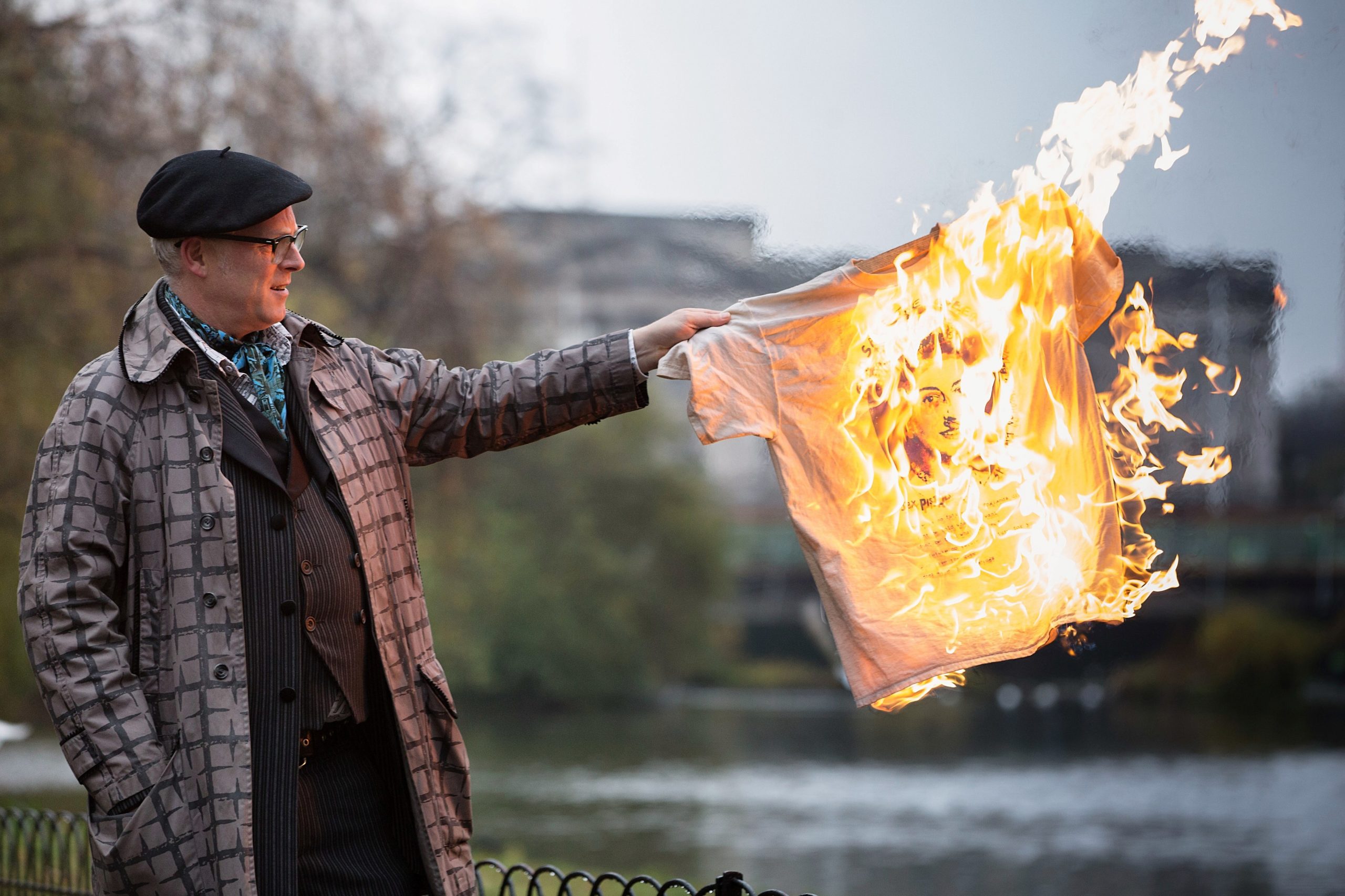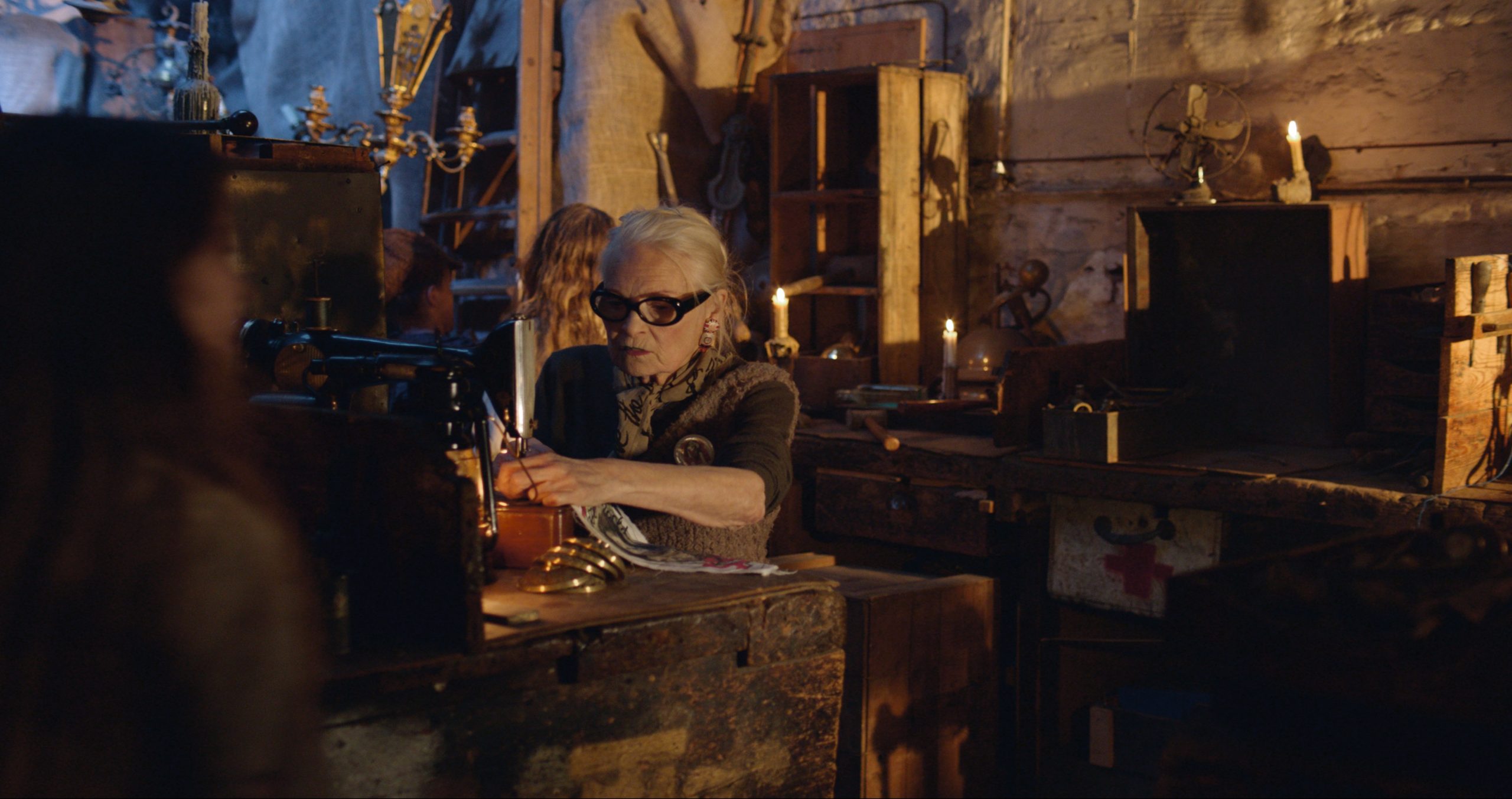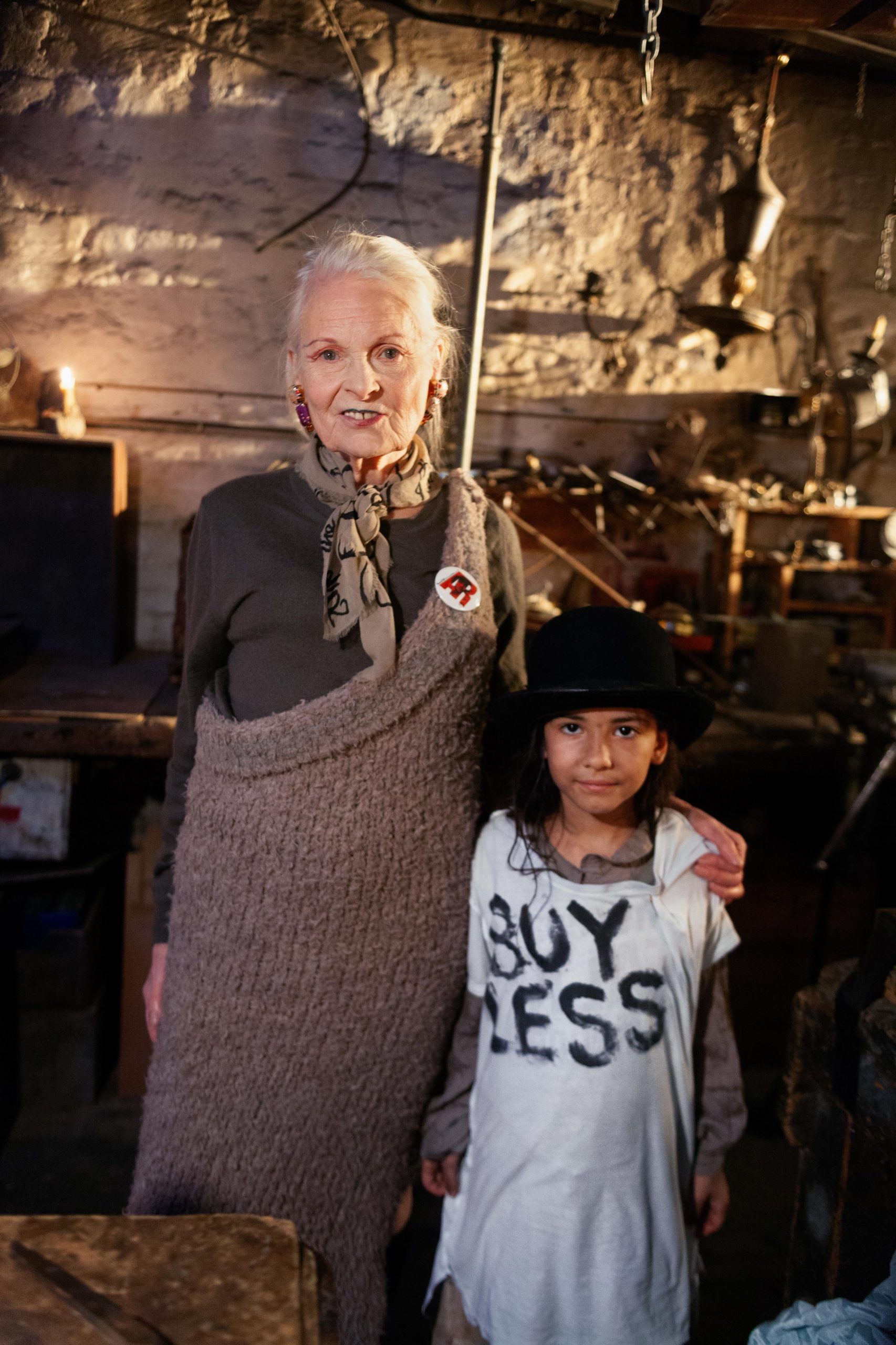
★★☆☆☆
Vivienne Westwood’s son Joe Corré burned £5m worth of punk memorabilia in 2016 and now Nigel Askew has made a documentary about it. Kind of.
Punk is a term that’s difficult to nail down and define. Is it a music genre? A way of life? A state of mind? Whatever it is, it’s become increasingly commodified and commercial with Sex Pistols-themed bank cards and punk-themed afternoon teas. It’s all exactly and precisely what punk is supposedly against.
Nigel Askew’s new documentary, Wake Up Punk, tries to drill into how punk has changed and what it stands for by following Joe Corré and fashion icon Vivienne Westwood as Corre goes on to burn millions of pounds worth of music memorabilia in 2016.
Making punk seem like something exclusive and discriminatory rather than inclusive and celebratory.
The level of access within Wake Up Punk is incredible. It’s clearly made by someone deeply integrated into the community and with a lot of love for all things punk, but Wake Up Punk lacks a sense of personality and intimacy. If Askew included himself into the documentary and tied it to his own memories and experience, its scatteredness would be excusable.

The problem is that Askew’s documentary comes across as an effort to gate-keep punk from others. This probably wasn’t the intention, but it seems that punk is only meant for the few, making it seem like something pretty exclusive and discriminatory rather than inclusive and celebratory.
This isn’t to say there is something quite horrendous about an afternoon tea served on plates designed to look like old punk records. Punk equals anarchy, a separation from the establishment, but Askew’s documentary lacks that spirit. It’s aimless in all the wrong ways, a collection of interviews and archive footage without a clear goal or message.
Vivienne Westwood, one of the most profitable and recognisable icons of punk, comes across as warm and full of life here but the same can’t be said about her son Joe. Corré is clearly a passionate man and the documentary’s most interesting element is his troubled relationship with his father, Malcolm McLaren, but Corré also comes across as arrogant.
Perhaps a different approach would have focused more on how that troubled relationship moulded and changed Corré, but Askew is in a rush to bring in more archive footage. None of it really gels together, creating a documentary that has the informational value of a cereal box.

While Wake Up Punk asks all the right questions, it doesn’t find any answers. It also inadvertently asks some awkward questions, ones it definitely doesn’t want to ask but are hard to ignore. If the commodification of punk is inexcusable, how has Westwood made her wealth largely on its aesthetic and why aren’t we fighting that?
The strangest part of the documentary is the weird narrative framing device of Dickensian-children acting out a script, spelling out punk’s values and – in Askew’s defence, pretty accurate – societal issues. The scenes feel irrational and separate from the otherwise down-to-earth documentary.
It’s a shame Wake Up Punk isn’t better. Perhaps it needed a filmmaker who needed to learn something about punk, knowing what questions to ask. As it stands, Wake Up Punk seems like a relic even before it’s released, aimed solely at those alive in the heyday of the movement.


